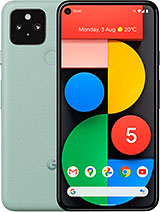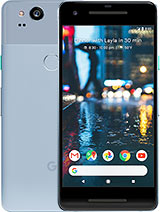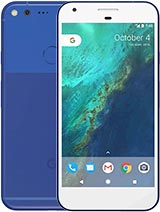Google Pixel 6 and 6 Pro: I held both. Here's what you need to know. By The Verge
- So I have held the Pixel 6. Hi everybody. (chuckles) I've also held the Pixel 6 Pro. I've gotten to look at some demos and hear a lot about the brand new Google-designed processor that is inside these phones. Let's talk. (light, dynamic music) So first things first, you are probably noticing that I'm not holding a Pixel 6 or 6 Pro in one of my hands.
And also that we don't have any original "Verge" footage. That is because Google wouldn't let us take photos or video. The point of the meeting that I had with hardware chief, Rick Osterloh, was to get a download on some of the details of the new phone and the new processor, but the full launch of the Pixel 6 is gonna come in the fall. So I guess today's announcement is an announcement, or a tease, or something. Anyway, there is actually a lot to talk about, including my first impressions of the hardware of the devices, this new Google Tensor system on a chip.
It's called Tensor, that's the SOC. And there are a few details about how it works with AI, and we've got a handful of specs. But the key takeaway for most of us is simply this: Google is finally going for it. They're making a flagship phone and they're trying to take the best of the best head-on in the premium space, and probably with a premium price. I don't know what the price is gonna be, but I'm going to assume over 1,000 bucks.
After years of mostly just making midrange phones, Google is finally swinging for the fences with better screens, better cameras, better build quality, the works. (gentle rhythm music) Let's just get some of the basic phone stuff out of the way real quick. The regular Pixel 6 has a 6.4 inch completely flat screen with two cameras on the back. There's a wide and an ultra-wide. The Pixel 6 Pro has a 6.7-inch screen that's a little bit curved on the edges. It has glossy rails on the side instead of matte.
And it has a 4X optical zoom folding lens, like a periscope lens. There will be some memory differences between the two phones, but they're both gonna have Google's new system on a chip, higher refresh rate screens, an in-screen fingerprint sensor, and other premium foam things. Like I said, I held them and they feel like what Google would do if it were trying to like make a high-end Huawei phone or something there: glass on the back, they feel really solid. There's virtually no bezels on the front. I actually liked the way the colors look in-person.
You know, like recent Pixel phones have been like nice, but kind of basic. These new Pixel phones are nice, but kinda nice. Now, as big a deal as Google finally trying to challenge Samsung and OnePlus and Huawei at the high-end might be, the bigger deal is that they are using a brand new processor, technically a SOC system on a chip that's called Tensor. Tensor is the brand that Google uses for some of its AI hardware. So it's T-E-N-S-O-R, not like it's more tense.
So what Google has done is, they've taken the Tensor Processing Units, the TPUs that they use in their machine learning data centers, and they've made a mobile version of that that goes into the Pixel 6. Now you probably know the basics of what goes into a phone's core specs. There's the CPU, the GPU, the RAM, and then maybe there are some like coal processors on the side to handle specific tasks, like image processing or security. With Tensor, Google is saying that it's going to do a flagship-level job on all of that core CPU stuff, but that the TPU part of it is also going to be essential to the entire pipeline. It's gonna be part of the main flow of how the phone works.
Sort of like how Apple added the Neural Engine to its A-series chips. Google doesn't want AI to just be a little faster on the side. It wants to make it as essential as all of those other standard phone parts. Okay, but what does that mean? Well, Google did show me a few demos. In one, there was a photo of a kid whose face was super blurry 'cause the kid was moving and flailing around, 'cause that's what kids do.
But the TPU was able to fix it so the kid's face wasn't blurry. What Google says happened here is, the main camera did the usual thing that Google's, you know, cameras have always done: It took up a bunch of photos, gathered lots of image data, but that the ultra-wide sensor on the Pixel 6 does something new. It is there just to get a super fast shot to minimize blur. And so with this new Tensor Processing Unit, what they can do without making you wait for it is, it's machine learning sees that there is a face there and that we hate blurry faces. So it grabbed that data from the ultra-wide, combined it with the regular data that Google's always grabbed, combined them and you have a sharp photo.
Now I have heard and you have heard lots of camera promises before. So we need to see if Google really can take back its lead in smartphone cameras. What I can say is that the camera sensors are finally new. They're not using the same one that they've been using forever. I don't know officially what the mega pixel count is yet.
That'll be official in the fall, but there's a rumor it might be 50 megapixels. Google did say that it takes in 150% more light than the Pixel 5 did, we'll see. (melodious rhythm music) So it's right to remain skeptical. But on the second demo I had a hard time not getting excited because it was video, and historically, pixel video kinda sucks. Pixel 6 video though, I think it has a legit shot at being good because it has that Tensor Processing Unit doing stuff really fast in the pipeline.
That means that they can run the same algorithms on video that they usually can only afford to run on photos. So the demo that I saw was 4K at 30 frames per second. Now, of course, Google is going to show something that puts this camera in a good light. But the comparison that I saw between the Pixel 6, the Pixel 5, and the iPhone 12 Pro Max, I kind of think the Pixel 6 looked the best. It was a heavy HDR shot shooting right into the sun.
And it managed to not overlighten shadows in that situation. It also didn't do that Pixel thing of oversharpening everything. Like, the grass actually looked real, and it had better white balance than the iPhone. Now, again, this was just one video sample shot by Google. So I am not vouching here, but it's a good sign.
Those were the camera demos, but, you know, there are a couple other demos. So you may know that the Pixel can do on-device captioning. It can play any video and caption it in real time. And now on the Pixel 6, that is gonna be faster and more accurate. And because they have their AI processor right in the pipeline, they can translate audio in real time without an Internet connection.
I also saw a voice typing demo running through the TPU. It seemed a little bit more accurate. You can also talk to, you know, the phone to type, but also edit with the keyboard at the same time. Both kind of input methods are active, and that was kind of neat. But the thing about AI on phones is that it's kind of hard to turn it into a selling point.
With the Pixel 6, the challenge is gonna be whether or not this AI stuff makes a noticeable difference in the way that you usually use your phone every day. Will you even notice, for example, that things can be a little bit faster because the CPU and the GPU have both been freed up because the AI chip is handling a bunch of the AI load? Maybe you will, maybe you won't. By the way, there's also a separate little computer system for handling low-level things, like the always-on screen, and that should help with battery life. But Google is still only promising, like, all-day battery life. They're not promising multiday battery life here.
We can't know if we can believe Google about the importance of the Tensor SOC until we had the chance to use the phone. The only thing I do know is that the phone looks good and it feels better than any Pixel has in recent memory. I am not completely sold on the big camera bar on the back, but I do like that it doesn't wobble when you set the phone on a table and it does have a tiny little metal ridge to protect the glass over the lenses. And like I said, I really like the colors. The only bummer is, that Coral orange color that you've seen in the leaks, that's only gonna be available on the regular Pixel 6, not on the Pixel 6 Pro, which has slightly more boring colors.
So that's the big stuff that I could glean from, you know, a half hour, 45 minutes of playing around with these phones and getting some demos from Google. But there is one more thing to talk about and it's another sign that they're just going for it, that they're actually trying to sell phones now. Rick Osterloh told me that, quote, "This product really now is the Google Phone," unquote. So they're gonna invest in marketing, and Google also wants to grab market share, finally. Heck, on Google's last earnings call, their CFO had to warn investors that Google would be spending a lot of money on marketing over the holiday season.
- In addition, we expect sales and marketing expenses to be more heavily weighted to the back half of the year, in part to support product launches in the holiday season. - Now, of course, I asked Google, you know, "What's the CPU clock speed? You know, what's the benchmarks compared to a Snapdragon or an Exynos or, you know, is Samsung making it? Heck, who is making the modem?" No comments down the line. But Google is saying that it is trying to make a phone that is competitive with the best phones out there. With the Pixel 5, and you know, even the Pixel 4, and you know, earlier Pixels. They weren't saying that this was the best of the best ultra premium, but that's what they're going for now.
But I do like what I see so far, and if Google is right, that it's competitive on the, you know, core spec stuff, then it doesn't matter if this AI stuff turns out to be life-changing or, you know, just kind of a nice thing on the side. Either way, it should be a very nice phone, but obviously we have to withhold judgment until the thing is actually announced or launched. What even is a phone launch anymore? Anyway, the official launch is gonna happen this fall and that's usually in October. So look, I am not saying that you should get hyped for the Pixel 6. Not gonna say that.
Not yet. But I do think it's very interesting that Google thinks you should get hyped. (buzzing tone) Hey, everybody. Thanks so much for watching. I know this was a weird one 'cause we don't have all the details yet, but that's how Google wants to announce this phone.
So there you go. Actually, it's also how Samsung has announced that it's launching a bunch of folding phones in just a week or two. So it's a weird trend. What do you think of that trend? Let's talk about that downstairs in the comments. (tapping beats) My phone just fell.
Source : The Verge



























